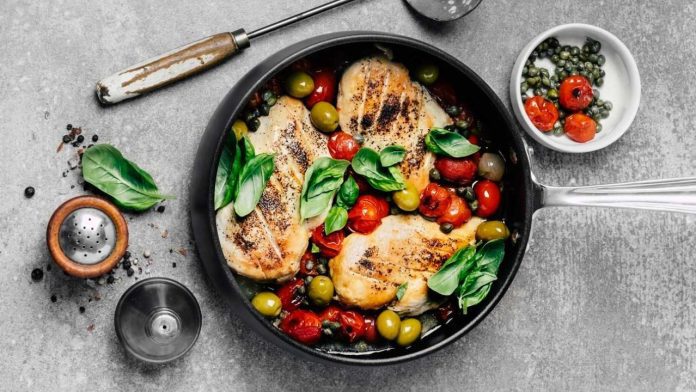Because the food we eat not only nourishes us, but also the trillions of bacteria that live inside of us, it has a variety of effects on our bodies. These minute bacteria are found in every person and, when combined, make up our microbiota. However, the composition of each person’s microbiota is distinctive, and this exclusivity extends to the point where even identical twins do not have the same microbiota.
The good news is that one can maintain a healthy gut and, as a result, dramatically enhance their overall health by making some straightforward and efficient adjustments to their diet, as listed below:
• You should not eat any processed foods.
However, despite the undeniable fact that items such as chips and processed meats have such a scrumptious flavor, there is a downside to eating them. These items have a delectable taste, but that comes at the expense of our health, as their shelf life is significantly increased. The majority of ultra-processed meals contain excessive amounts of saturated and trans fat, salt, sugar, and food additives, all of which have the potential to negatively impact not only the gut but also the body as a whole. The consumption of foods with such a high level of processing leads to an imbalance in the gut microbiome known as dysbiosis. It takes place when there is a rise in the number of bacteria that are dangerous while there is a fall in the number of bacteria that are beneficial. Because of this, it is advisable to steer clear of such meals and instead go for ones that have been lightly processed, such as fresh fruits, vegetables, and whole grains, as these foods present a more favorable environment for the bacteria that live in the gut.
• Strive to strike a healthy balance between foods derived from plants and those derived from animals.
The most abundant sources of the precursors of the microbial metabolite known as TMAO (trimethylamine N-oxide) are found in red meat. Additionally, albeit in much lower concentrations, they can be found in beans. If you are curious as to why we are talking about this metabolite, the answer is because the microorganisms in our intestines make this metabolite in response to our consumption of red meat. The fact that TMAO is linked to an increased risk of cardiac diseases as well as inflammatory bowel illness is the main cause for concern here. On the other hand, following a vegetarian diet does not expose people to the same dangers. Those individuals who get all of their protein from animal sources alone ought to heed this warning and make an effort to add more plant-based sources into their diets.
• Be sure to consume some fermented foods.
Foods that have been fermented can originate from a wide variety of ingredients, including vegetables, grains, milk, and legumes, amongst other things. Consuming fermented foods on a regular basis such as curd, yogurt, and kombucha tea can increase the population of beneficial microorganisms in the gut, which in turn decreases the likelihood that harmful microbes would colonize the gut (this phenomenon is also referred to as colonization resistance). However, if an individual discovers that their gut problems are not improving despite their efforts to implement the aforementioned measures, it is essential for them to rely on the power of genetics to learn the how and why behind optimizing their gut health.
• Taking an antibiotic for the treatment of a minor ailment is the worst thing that a person can do for their digestive health.
In addition to the beneficial bacteria that antibiotics are designed to eradicate, they also kill off some of the bacteria that are normally found in the digestive tract. Antibiotics are undeniably one of the most significant and beneficial discoveries in the annals of human history. However, improper administration and excessive use of these antibiotics are equally detrimental not just to gut health but also to the development of a phenomenon known as antimicrobial resistance (AMR). To put this another way, this indicates that drugs that were once successful in combating a certain group of germs no longer have any effect on those microbes. The fact that antimicrobial resistance is one of the top ten dangers to global public health, as ranked by the WHO, is indicative of how serious the situation currently is. When seen in the context of the entire situation, this suggests that it is difficult to control the treatment and spread of sickness, which in turn leads to increased mortality due to infections.
• Make sure your diet includes fiber and a wide variety of colors!
Do yourself a favor and provide the microorganisms in your gut with the food and water they require so that they can thrive and reproduce. Prebiotics are the magical chemicals that encourage their growth and vigor, and they are the key to their overall health and well-being. Bananas, apples, onions, garlic, barley, and oats are examples of foods that are naturally rich in dietary fiber, and they are all readily available. In addition, eating foods from all the colors of the rainbow is an excellent way to improve the health of your digestive tract as well as your overall well-being. Fruits and vegetables come in a wide variety of hues because they contain a wide range of nutrients and antioxidants. These nutrients and antioxidants encourage diversity in the gut microbiota.

 हिंदी
हिंदी






